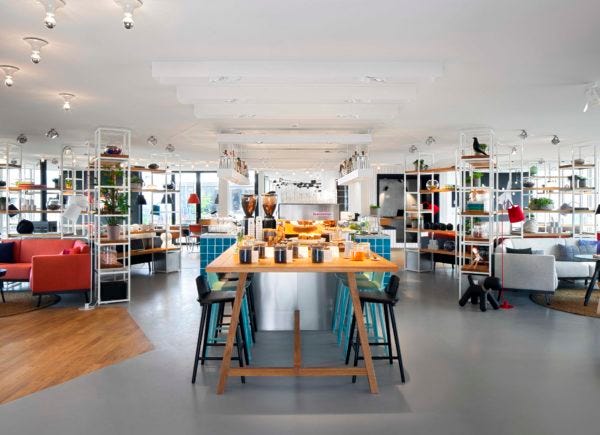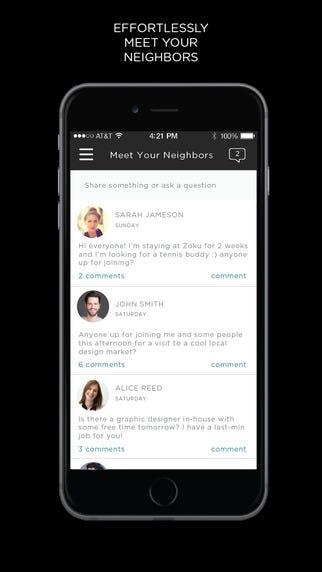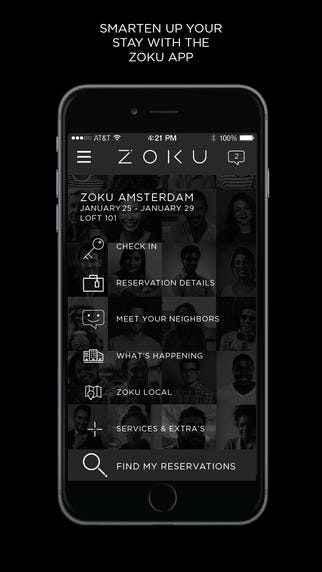Investment Thesis on REtech Startup Zoku
The hospitality industry hasn’t felt much of a change in sales despite innovation of occurring over the last ten years. There has been price optimizing sites such as Priceline, Expedia and Hotel Tonight that have maintained sales and decreased vacancies. And of course, the biggest disruption has been the influx of the shared economy on the vacation rental industry led by Airbnb. However, at Startup Fest Europe last month, Airbnb co-founder, Nathan Blecharczyk, stated that the growth of Airbnb has not taken market share of hotels because the company is reaching a new market. Thus, Blecharczyk claims the shared economy tech company is growing the hospitality market with people who typically don’t travel. This statistic initially surprised me but it made sense because the largest incumbents in the hospitality industry are typically servicing business travelers or leisure travelers going to a familiar space. So the Airbnb case study shows that there are many opportunities to innovate and fill gaps within the hospitality space and I believe I feel upon a startup that could do just that called Zoku.
Company Overview
Zoku, which means family or clan in Japanese, is the interesting home and work hybrid that I had the pleasure of staying at during my Startup Press tour in Amsterdam a couple weeks ago. The sleek looking space features highly personable employees, coworking space, and loft hotel rooms. With these amenities, Zoku is striving to address the extended stay market (approximately 5 days to 3 months) for global urban nomads. As a self-proclaimed former quasi-global nomad, I felt my stay at Zoku met all my needs as visitor seeking a genuine experience that makes me feel at home.
Product
This home/trip/work atmosphere is immediately felt when you enter the hotel’s lobby which is strategic up placed on the top floor. At Zoku visitors do not have to walk to a front desk that serves as a barrier between the employees and visitors but instead visitors are welcomed by “Sidekicks” who walk them to open kiosks to check-in. In the lobby, I first observed the nice spread of refreshments and pastries at the bar as well as the family styled dining area. The large windows throughout the common area and meeting space provided natural light for the patrons and green areas where the Zoku kitchen staff grows some produce. Then I went to my loft room that was very spacious and featured a kitchen area and desk with work supplies. If this sounds appealing to you as it was to me, it maybe because the founders of Zoku (Hans Meyer and Marc Jongerius) were very particular about creating the right space that would align with their target traveler.
Hans for approximately 6 months took customer discovery serious by not only interviewing hundreds of potential customers but also living as an urban global nomad himself. He lived in global cities such as Buenos Aires, New York and Washington DC with the goal of finding the gaps in the hospitality industry and determining the preferences and priorities of the urban nomads. He found through those conversations, research, and EKG headset testing to measure what provides hotel visitors with anxiety and excitement, that this group seeks a “social local” experience where private life (loft) and public life (kitchen/coworking spaces) are blended.
Near-term Focus: Product-Market Fit
It’s still very early days for the Zoku team, but with their first site opening in Amsterdam, all signs point to strong product market fit potential. Hans and Marc and the rest of the team worked diligently to open two weeks early for the Opening Event for Startup Fest Europe and The Next Web Conference attendees. I didn’t notice any hiccups in my stay which suggest the team may really be on to something. Although The founders are current looking for sites and cities to expand, the Amsterdam site will be home to testing out innovations in the product offering including:
Zoku App: The startup has a social network and community lead role and hope to foster connections amongst the community of residents that is mutually beneficial
Floor Plan Designs: the team has been able to utilize space 25% more efficiently with 125 rooms where most hotels only have 100; there are still opportunities to diversify the room designs and make the more accommodating to various groups
Pricing driven by length of stay: The team expects the average stay to be 8–10 days but needs to find methods to maximize the opportunity with dynamic pricing tools
Market Opportunity
Despite the need to continually test the business model and hotel offerings, I believe Zoku is well positioned to succeed thanks to macro trends associated with population and workforce. It is projected that by 2050 66% of the population will live in urban areas while approximately 40% of the workforce will become contract workers — assigned on projects for weeks or months on end. Hans and Marc informed the press that these trends encourage them to look to expand their unique hotel offering to other cities that are urban areas that have international talent and creative environments. Of course, this product offering that combines work and living has been introduced in select markets by WeWork (WeLive) and Common, but I think the concepts Zoku is testing has the chance to really grow the market with extended stay urban travelers and become a market leader. I can’t wait to book my Zoku loft in the future when I’m traveling to work in London, Seattle, or Austin.
Earnest Sweat is a Startup Adviser that specializes in mentoring startups within the fin tech, ed tech, and real estate tech sectors. If you have any questions, comments or requests please connect with Earnest through LinkedIn, Twitter, or AngelList.
If you liked what you read please ☞ tap or click “♥︎” to help to promote this piece to others.







